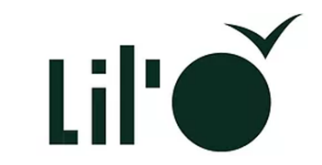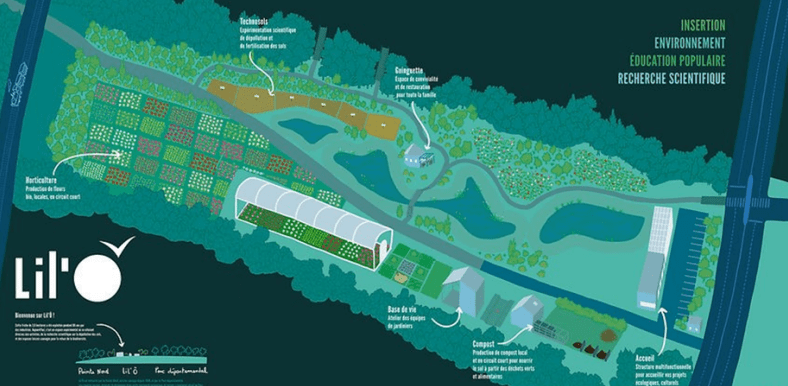
Lil’ Ô is a project under the association Halage to improve the economic, social and cultural integration of people to overcome barriers to enter the labour market through the implementation of educational, pedagogical, recreational and environmental management actions.
The project fosters social & economical inclusion, bio- diversity, education and research in the region.
Hoe does the organization address societal challenges in an innovative way?
The association Halage fights against unemployment, marginalisation and inequality while also regenerating the regional natural habitats. They do so by mobilizing necessary resources from the public or private sectors to create activities and job opportunities for people facing employment barriers. Halage is a not- for- profit organization, with a strong commitment to local development and territorial cooperation.
The Lil’ Ô project regenerates a 3 , 6 - hectare wasteland and creates a laboratory of new urban experiences in a region facing social, economic and environmental challenges. The project combines inclusion, biodiversity, empowerment, education, scientific research, art and leisure principles all together on one site.
What societal benefit does the organization create?
The organization provides trainings, education and employment services to people throughout their work integration programs. Furthermore, they develop new practices to foster local development. Halage aims at solving current and future environmental and social problems through the creation of new urban jobs that build up upon existing knowledge by mobilizing various competencies to respond to the needs in a better way.
The project is very inspiring for all people involved. Employed people are inspired by the collective energy. Together they fight against unemployment and environmental issues. They innovate, take new paths.
People attending the work integration programs are inspired by the environmental activities and the opportunity to reveal their knowledge and know- how. Halage also prioritizes the idea of empowerment since beneficiaries usually come to the organization with several personal challenges and issues that require personal support.
The organization has managed to create conditions for the development of new responses to old problems.
Some illustrations are the creation of a new sector area: composting, f lowers in Urban agriculture, techno- soils.

What new urban trades are created in the project?
“ It is necessary to experience and understand the issues we face today in our communities to be able to tackle them. We do that at Halage through activities like waste management, slow and sustainable f lower production and more.” Says Stéphane Berdoulet the Co- President of Halage. In the various projects, Halage always aims at empowering people and revealing the diverse skills brought by each participant to the project. Their knowledge is crucial to reinvent and shape urban areas and foster regional sustainable development. Therefore, Halage educates people to work in new sectors. Ultimately, the people at Halage believe that f lowers can be grown locally, that cities can find an alternative way to get soils that spoil the countryside, and that food waste is gold.
" Urban Horticulturalist", " Soils Maker" and " Collecting & Composting broker” are embedded in the different projects at Lil’ Ô.
Fleurs d’ Halage aims at growing f lowers in a slow f lower approach. Faiseurs de Terres aims at producing soils out of urban elements, in a circular approach.
Les Alchimistes aim at producing compost out of food waste on an industrial dimension.
“ Urban Metabolizer” and “ Eco- Touristic guard or mediator" will come in a mid- term scale through the idea of relying on people' s know- how in terms of reusing wastes on one side and speaking foreign languages on the other side.
What makes the organization particularly interesting as an example?
The project unveils alternative ways to design more resilient cities by integrating knowledge and know- how of the different cultures of the inhabitants. Since all programs at Lil’ Ô are linked to universal social, environmental or economic issues the project can be a good practice example that could be well adapted in other urban contexts.